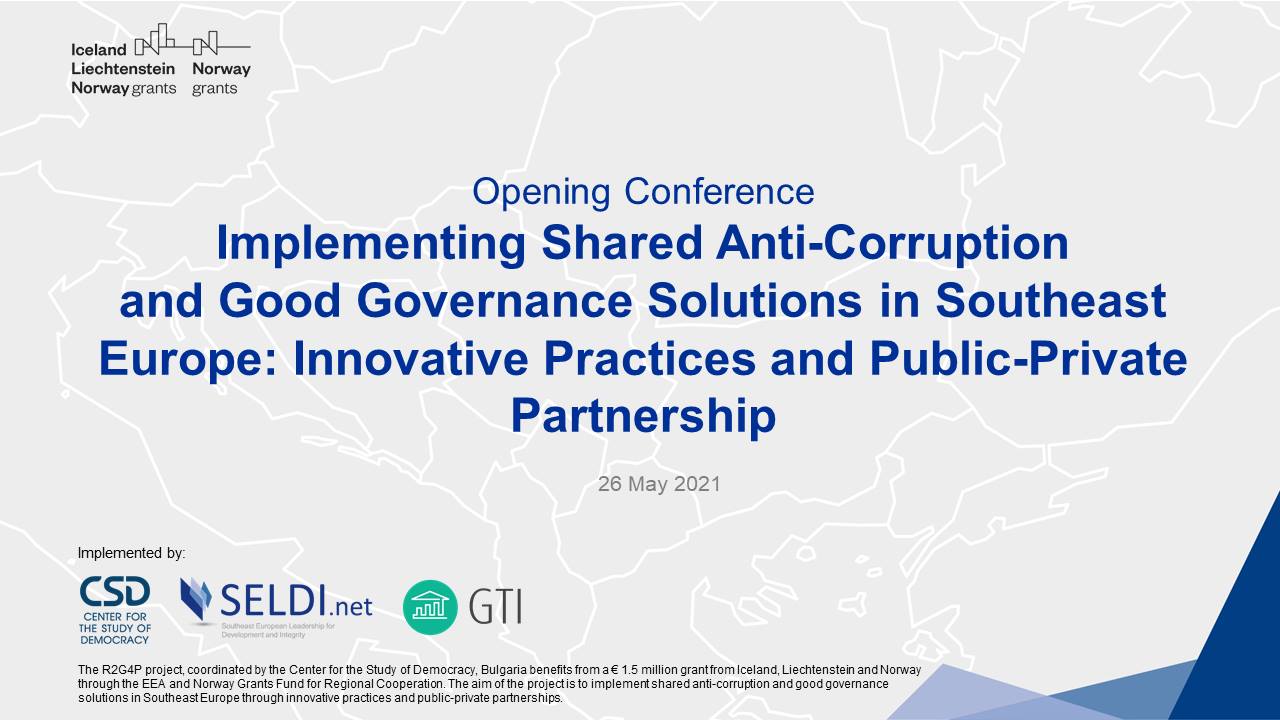Anti-corruption efforts in Southeast Europe (SEE) have come a long way since the turn of the century. Yet, the past five years have shown stagnation and even backsliding, thus confirming that anti-corruption should not be conceived as a final destination, but rather as a consistent process of democratic renewal, checks and balances.
In order to revitalise the anti-corruption drive of the region CSD, supported by twelve partners from ten SEE countries, launched the R2G4P initiative (regional good governance public–private partnership platform) on 26 May 2021. The initiative will rely on the cooperation between CSOs and government bodies to deliver shared anticorruption solutions, focusing on preventing public procurement mismanagement in light of the planned increase in EU infrastructure support until 2025. It will also aim at enhancing the accountability of state institutions and strengthening the civil society across the region.
The urgent need of a behavioural change and an active civil society was highlighted in the keynote speech of Prof. Alina Mungiu-Pippidi, Chair of the European Research Centre for Anti-Corruption and State Building Research at the HERTIE School of Governance. Prof. Pippidi noted that introduction of new laws would not be sufficient to safeguard democracy in countries where the regulatory and enforcement efficiency remains low. According to her, judicial independence and freedom of the press stand among the key rule of law preconditions. Conference participants further underlined that governments and CSOs should strive to engage all citizens in the anti-corruption debate, increasing the demand for reforms. Moreover, the oversight should cover all levels and areas of governance and ideally be based on practical tools and measurement instruments.
Traicho Traikov, Mayor of Sredets District in Sofia and Former Minister of Economy, Energy and Tourism, and Guilio Venneri, Head of the Centre of Thematic Expertise at DG NEAR raised the concern that the current geo-strategic situation could further enable corruption and state capture. Thus, the European Union should continue to promote the balance of power at national level and ensure multipartyism.


